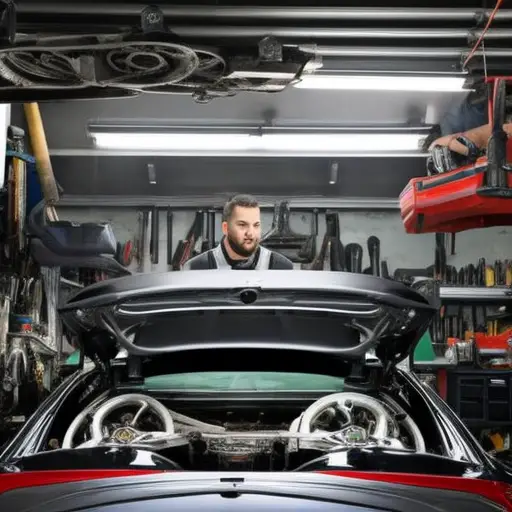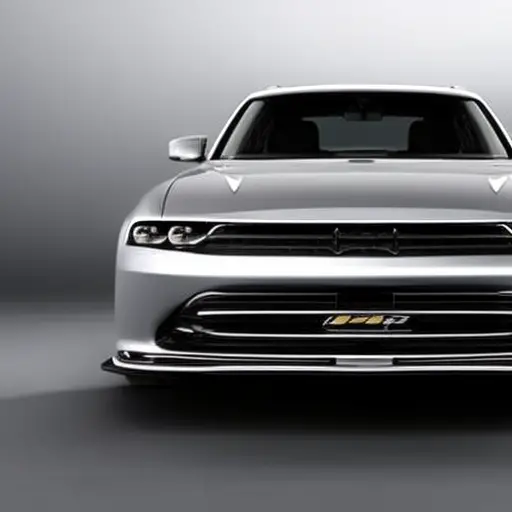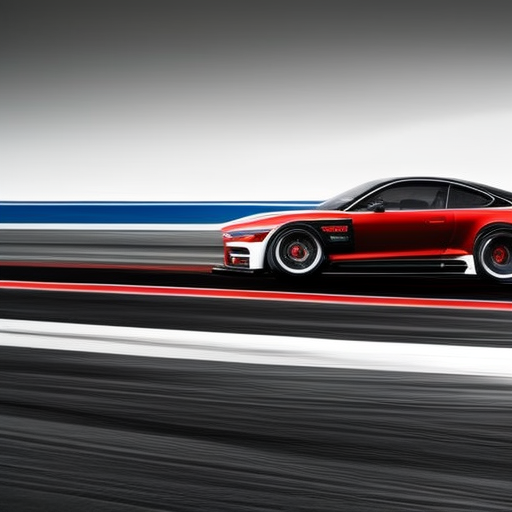DIY Car Mods Vs. Professional Installation

Embarking on DIY car modifications is akin to navigating uncharted roads, teeming with potential pitfalls and rewards. In the realm of automotive enhancements, the decision between self-installation and professional intervention is pivotal.
This article meticulously dissects the various aspects of this dilemma, from cost implications and skill prerequisites to the intricacies of quality control and customization options.
Through analytical exploration, readers will gain insight into the merits of each approach, empowering informed decision-making.
Cost Considerations
The cost considerations for car modifications can vary significantly depending on whether you opt for a do-it-yourself approach or professional installation. When considering DIY car modifications, the primary advantage is the potential for cost savings. By undertaking the installation or modification yourself, you can eliminate the labor costs associated with professional services. However, it’s crucial to consider the trade-off between potential savings and the expertise required for successful implementation. DIY modifications may lead to savings in labor fees, but they could also result in additional expenses if mistakes are made during the process, necessitating professional corrections or replacements.
On the other hand, professional installation guarantees a certain level of quality and expertise. Car modification professionals possess the necessary skills and experience to execute the modifications accurately. While this expertise comes at a cost, it ensures that the modifications are done correctly the first time, potentially saving money in the long run by avoiding rework or repairs. Additionally, professional installation often includes warranties or guarantees, providing added financial protection in case of any issues post-installation.
In evaluating the cost comparison between DIY savings and professional fees, it’s essential to consider not only the immediate expenses but also the potential long-term implications of the chosen approach.
Skill Requirements
When considering the skill requirements for DIY car mods versus professional installation, it is crucial to evaluate the level of expertise needed for each approach.
DIY modifications often demand a certain level of mechanical knowledge and practical skills, as well as a considerable time commitment.
On the other hand, professional installation typically requires specialized training and experience to ensure precision and adherence to industry standards.
DIY Vs. Professional Expertise
While attempting DIY car mods can be fulfilling, it is essential to recognize the level of expertise and precision professional installation demands. DIY limitations may arise due to a lack of specialized tools and equipment, as well as the potential for errors in the installation process. On the other hand, professional advantages include the use of advanced tools, extensive experience, and a deeper understanding of vehicle systems. Cost benefits of DIY may be overshadowed by the risk of damaging expensive car components, leading to higher expenses in the long run. Moreover, skill trade-offs become apparent, as DIY enthusiasts may need to invest significant time in acquiring the necessary expertise, whereas professionals already possess the required skills. The table below summarizes the key differences between DIY and professional expertise in car modifications.
| Aspect | DIY Expertise | Professional Expertise |
|---|---|---|
| Tools & Equipment | Limited access to specialized tools | Advanced tools and equipment |
| Experience | Limited experience with complex installations | Extensive experience and knowledge |
| Cost | Potential for higher expenses due to errors | Higher initial cost but lower risk |
| Time | Time-consuming learning curve | Efficient and timely installations |
Time Commitment for Both
Navigating the time commitment for both DIY and professional car mod installations requires a thorough understanding of the necessary skills and expertise involved.
When considering the time commitment for DIY car mods, efficiency is a key factor. DIY projects often require a significant time investment due to the need to research, plan, and execute the modifications. Additionally, DIYers may need to acquire new skills or tools, further increasing the time required.
On the other hand, professional installation prioritizes accuracy and proficiency. Professional installers have the expertise to efficiently complete car mods within a specified timeframe. They possess the necessary skills and experience to ensure precise and accurate installations.
When choosing between DIY and professional installation, individuals must consider the trade-off between DIY efficiency and professional accuracy.
Time Commitment
How efficiently can DIY car mods be completed compared to professional installation?
DIY efficiency depends on the individual’s skill level, available tools, and prior experience. While DIY projects allow for flexibility in scheduling and may save on labor costs, they often require a significant time commitment due to the learning curve and potential for errors.
Professional expertise, on the other hand, offers efficient and precise installations due to the training, experience, and specialized tools available to professional installers. Professionals are adept at managing time effectively, streamlining the process, and minimizing errors, resulting in quicker turnaround times. Additionally, professional installations often come with warranties that provide peace of mind to the vehicle owner.
Transitioning into the subsequent section about ‘quality control’, it is essential to consider how time commitment impacts the quality of the installation. While DIY projects offer the satisfaction of personal accomplishment, professional installations generally provide higher quality control due to the expertise and experience of professional installers.
Quality Control
When it comes to quality control in car modifications, one point of consideration is the DIY precision versus professional expertise.
Another aspect to examine is the adherence to professional standards and checks, which can differ between amateur and professional installations.
Additionally, the consistency and workmanship in the final product should be evaluated to determine the impact of DIY versus professional installation on the overall quality of the car modification.
DIY Precision Vs. Expertise
Ensuring precise execution and quality control is crucial when comparing DIY car modifications to professional installations. When considering DIY precision versus professional expertise, several factors come into play:
-
DIY Precision: DIY enthusiasts may possess a deep understanding of their specific car model and have the ability to customize modifications to fit their exact specifications.
-
Professional Experience: Professional installers have extensive experience working on a wide variety of vehicles, allowing them to efficiently and effectively execute modifications with precision.
-
DIY Expertise: DIYers often invest significant time and effort into researching and learning about different modification techniques, gaining a high level of expertise in their niche.
-
Professional Skill: Professional installers undergo rigorous training and are equipped with specialized tools, enabling them to perform modifications with a high degree of skill and accuracy.
-
Quality Control: Professionals have established quality control processes to ensure that modifications meet industry standards and adhere to safety regulations.
Professional Standards and Checks
Professional installers adhere to strict quality control standards and checks to guarantee that all car modifications meet industry regulations and safety requirements. This commitment to professional training and adherence to industry standards ensures that every modification is carried out with precision and expertise.
Professional installers are equipped with the necessary knowledge and skills to assess the specific requirements of each car modification and ensure that the work meets or exceeds industry standards. They undergo comprehensive training to understand the intricacies of different vehicle models and the latest technological advancements.
Additionally, professional installers are well-versed in conducting thorough quality checks to ensure that the modifications are not only aesthetically pleasing but also functionally sound and safe for the vehicle and its occupants.
Consistency and Workmanship
Adhering to meticulous quality control measures guarantees the consistency and workmanship of every car modification, ensuring that each alteration meets rigorous industry standards and safety regulations. This level of precision is often challenging to achieve in DIY craftsmanship due to the lack of access to specialized equipment and expertise. On the other hand, professional workshops are equipped with advanced tools and follow strict workshop standards, resulting in a higher level of consistency and workmanship.
This is achieved through:
- Regular quality inspections throughout the modification process.
- Compliance with manufacturer specifications and guidelines.
- Adherence to industry best practices for installation and testing.
- Utilization of precision measuring tools to ensure accuracy.
- Implementation of standardized procedures for every modification type.
These measures collectively contribute to the superior workmanship and consistency achieved through professional installations, setting them apart from DIY car mods.
Warranty and Guarantees
For assurance of warranty and guarantees, it is essential to carefully consider the installation method for car modifications. When it comes to warranty coverage and guarantees, opting for professional installation provides a higher level of assurance. Professional installers are often authorized by manufacturers to perform modifications without voiding the vehicle’s warranty, ensuring that any potential issues will be covered. Moreover, reputable professional installers typically offer their own guarantees on the quality of their workmanship, providing added peace of mind to car owners.
Choosing professional installation for car modifications is not only about the expertise and precision that professionals bring to the table but also about safeguarding warranty coverage and ensuring guarantees. The professional reputation of the installer plays a critical role in this aspect. By selecting a reputable professional, car owners can be confident that their warranty coverage remains intact and that the modification is covered by guarantees against any installation-related issues.
Transitioning into the subsequent section about ‘tools and equipment’, the right tools and equipment are pivotal in achieving a successful and reliable installation.
Tools and Equipment
Considering the importance of precision and reliability, acquiring the appropriate tools and equipment is critical for successful car modification installation. For DIY enthusiasts, the right tools can significantly impact the accuracy and quality of the modification. On the other hand, professional installers rely on their experience and specialized equipment to ensure a flawless outcome.
Here are some key factors to consider for both DIY and professional installations:
-
DIY Accuracy: DIYers need to invest in precise measuring tools and torque wrenches to ensure accurate and secure installations.
-
Professional Tools: Professional installers have access to specialized equipment such as hydraulic lifts, engine hoists, and pneumatic tools, allowing for efficient and precise modifications.
-
DIY Learning Curve: DIYers may need to familiarize themselves with using tools like angle grinders and welding equipment, which can have a steep learning curve.
-
Professional Experience: Professional installers bring years of experience and training, allowing them to efficiently use a wide range of tools with precision.
-
Safety Equipment: Both DIYers and professionals should prioritize safety by using personal protective equipment, such as gloves, goggles, and ear protection.
As the discussion shifts to potential risks, it becomes evident that the right tools and equipment play a crucial role in mitigating these challenges.
Potential Risks
With the importance of precision and reliability in mind, it is essential to recognize the potential risks associated with both DIY and professional car modification installations. Safety hazards are a significant concern when undertaking DIY car mods. Inexperienced individuals may inadvertently compromise the structural integrity of the vehicle, leading to safety risks for both the driver and passengers. Additionally, improper installation of aftermarket parts can result in mechanical failures, such as braking or steering issues, posing a serious threat on the road.
On the other hand, professional installations also carry potential risks, albeit to a lesser extent. While certified technicians are trained to perform modifications with expertise, human error can still occur. Even a small mistake during a professional installation can have significant safety implications, especially in high-performance modifications.
Furthermore, both DIY and professional car modifications can have insurance implications. If a DIY modification causes an accident or contributes to vehicle damage, insurance coverage may be compromised. Similarly, if a professional installation is found to be faulty or the cause of an accident, insurance claims could be affected. It’s crucial for car owners to consider these potential risks and implications before proceeding with any modifications.
Customization Options
The customization options available for car modifications encompass a diverse range of features and enhancements, catering to individual preferences and performance needs. When considering DIY creativity versus professional craftsmanship, it’s essential to understand the various customization options available:
-
Performance Upgrades: Encompassing modifications such as turbocharging, supercharging, intake and exhaust upgrades, and engine tuning to enhance power and driving dynamics.
-
Aesthetic Enhancements: Including custom paint jobs, vinyl wraps, body kits, and aftermarket wheels to personalize the vehicle’s appearance.
-
Interior Modifications: Ranging from custom upholstery and trim options to upgraded audio systems and advanced infotainment units.
-
Suspension Tuning: Involving adjustments to the vehicle’s suspension system, such as coilover installations and sway bars, to improve handling and ride comfort.
-
Lighting Customization: Incorporating LED light upgrades, custom headlights, and taillights, as well as ambient interior lighting options to enhance visibility and aesthetics.
These options allow for a balance between DIY creativity and professional craftsmanship, enabling car enthusiasts to tailor their vehicles to their exact specifications while considering the level of expertise required for each modification.
Frequently Asked Questions
Are There Any Legal Implications or Concerns to Consider When DIY Car Modding Versus Professional Installation?
When considering DIY car modding or professional installation, one must be mindful of legal implications and safety concerns. It is crucial to comply with regulations and ensure modifications do not compromise vehicle safety or violate laws.
How Does DIY Car Modding or Professional Installation Affect the Resale Value of My Vehicle?
The resale value of a vehicle can be significantly impacted by the level of customization. Factors such as DIY vs professional installation, warranty coverage, aftermarket parts reliability, and insurance premiums all play crucial roles.
What Are the Potential Long-Term Maintenance and Upkeep Costs Associated With DIY Car Mods Versus Professional Installation?
When assessing potential long-term costs and upkeep considerations for car modifications, factors such as part quality, installation precision, and ongoing maintenance should be carefully evaluated. These can significantly impact the overall maintenance expenses over time.
Are There Any Specific Insurance Considerations or Implications to Be Aware of With DIY Car Modding or Professional Installation?
Amidst the allure of customizing vehicles, insurance considerations are paramount. DIY car modding may affect coverage, with potential exclusions and increased premiums. Professional installer liability and modification coverage demand meticulous evaluation to mitigate financial risks.
How Do DIY Car Mods Compare to Professional Installation in Terms of Overall Safety and Reliability?
When considering DIY car modding, safety considerations, reliability concerns, and legal issues should be carefully evaluated. Professional installation offers expertise, adherence to regulations, and potential insurance benefits, ensuring a higher standard of safety and reliability.
Conclusion
In conclusion, the decision between DIY car mods and professional installation should be based on several factors:
- Cost: Consider the financial implications of doing the modifications yourself versus hiring a professional.
- Skill requirement: Evaluate your own skills and knowledge to determine if you are capable of properly installing the modifications.
- Time commitment: Understand the amount of time it will take to complete the modifications yourself versus having a professional do it.
- Quality control: Consider the level of quality control you can achieve on your own versus the expertise of a professional.
- Warranty and guarantees: Determine if the modifications come with any warranties or guarantees, and if they are voided by DIY installation.
- Tools and equipment: Assess whether you have the necessary tools and equipment to complete the modifications yourself.
- Potential risks: Understand the potential risks involved in DIY installation, such as improper installation or damage to the vehicle.
- Customization options: Consider if you have the ability to fully customize the modifications yourself or if a professional can offer more options.
One interesting statistic to note is that 80% of car modifications done by amateurs result in improper installation or damage to the vehicle. This highlights the importance of careful consideration and weighing the factors before deciding on the best approach for car modifications.
Therefore, it is crucial to weigh all these factors and consider the potential risks before making a decision on whether to choose DIY car mods or professional installation.





